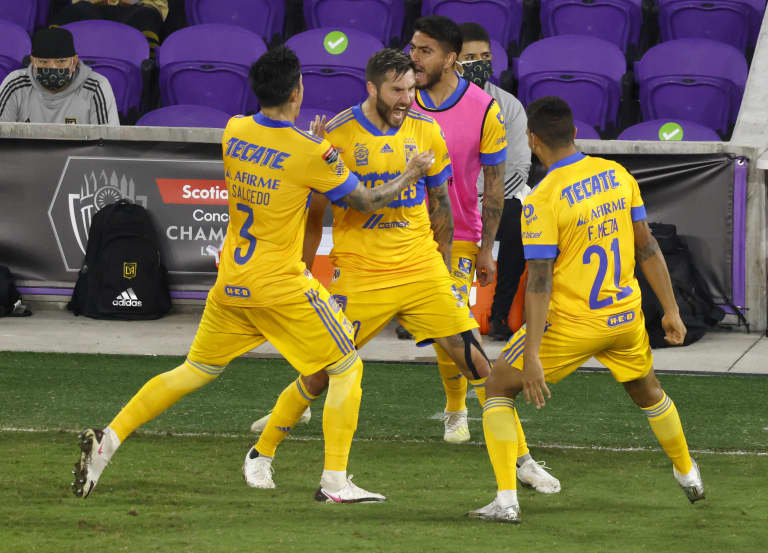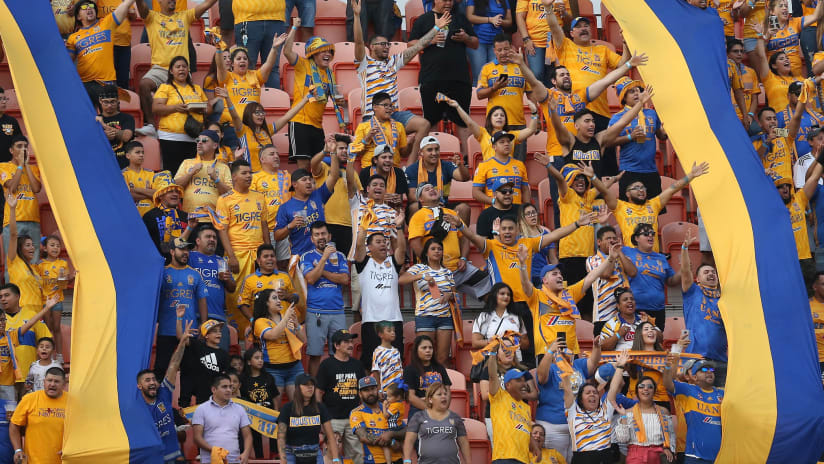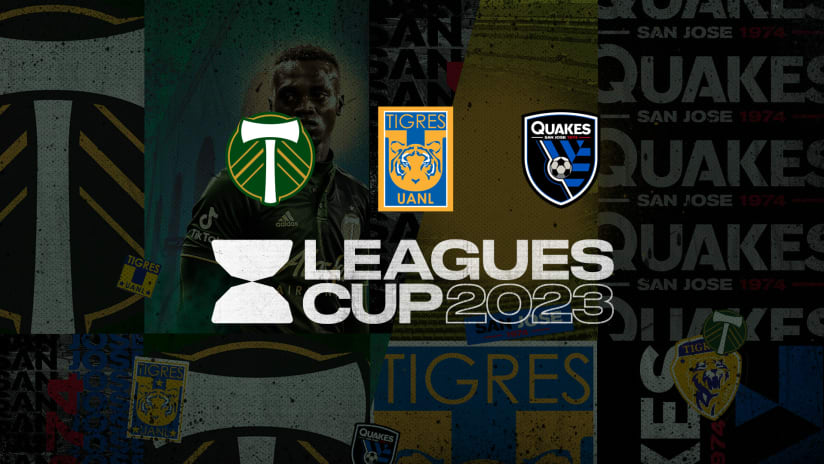The Timbers will begin their first ever League Cup campaign playing in a group with the familiar San Jose Earthquakes and Tigres UANL, one of Liga MX’s most successful clubs in the last 11 years.
Here's what you need to know about Tigres UANL.
Origins
Founded in 1960 on the campus of the Autonomous University of Nuevo Leon (UANL) in Monterrey, Mexico, Tigres weren’t always as ‘popular’ as they are today. Historically, up until the beginning of the 21st century the club had been a regular mid-table finisher for decades, with sporadic domestic success and only two Mexican league titles (1977-78 and 1981-82) to their name in a span of 50 years.
However, like many of the top clubs in modern soccer, Tigres’ fortunes would flip in 2010 after the appointment of new club investors, front office, and sporting operations.
The two most notable moves that would catapult Tigres to the peak of Mexican soccer? The appointment of decorated Liga MX coach Ricardo ‘Tuca’ Ferreti (2x Liga MX champion as a player, [at the time] 2x Liga MX champion as head coach), and the signing of French forward Andre-Pierre Gignac, a 2010 World Cup veteran who is now the all time leading goalscorer for Tigres with over 170 goals for the club.
Having been crowned in 2011, 2015, 2016, 2017, and 2019, Tigres has now long been considered a club at the top of the Mexican league, and it all started with their third league title in December of 2011—their first league title in nearly 30 years.

Big names, big success
Signing additional big name players like Argentine keeper Nahuel Guzman, Chilean superstar Eduardo Vargas, and future MLS Newcomer of the Year and MLS Cup MVP Lucas Zelarayan to name a few, aided Tigres’ quest to conquer the Mexican league. As the 2010’s progressed, Tigres earned Liga MX Final berths in 7 of the 20 tournaments that decade, an incredible feat that hadn’t been seen in Mexico since the dominant days of Cruz Azul in the 70’s.
Now a seven-time Mexican champion, Tigres’ domestic success translated into international success as well. They have been runners-up in the CCL three times (2015-16, 2016-17, and 2019), and won the CCL outright in 2020, granting them the CONCACAF champions slot at the 2020 FIFA Club World Cup in Qatar. Contrary to what Concacaf representatives had accomplished at the Club World Cup in the past, Tigres defied expectations and fought their way to the final where they suffered a devastating 1-0 loss to european giants FC Bayern Munich.
Since their Club World Cup finals appearance, Tigres has not been able to replicate the success of the 2010s. Legendary coach Tuca Ferreti left the club in 2021, and some key pieces of those winning years have either aged, or also moved on from the club. Tigres secured the services of the enigmatic coach Miguel ‘Piojo’ Herrera for the 2021 and 2022 seasons in hopes of returning to glory. It would be a failed attempt however, as Herrera’s character and managerial style oozed confidence but provided underperforming results. In November of 2022, Herrera was relieved of his duties and Tigres again went in search of the missing piece to return them to glory.
Argentine coach Diego Cocca, who recently made a name for himself in Mexico after leading Atlas FC to back-to-back titles in 2021-22, took over the vacant managerial spot late last year. Widely regarded as a coach who can turn franchises around, Cocca’s history in Liga MX speaks for itself.

What kind of team will the Timbers face?
Tigres boast a strong squad going into 2023. Former Mexico internationals Diego Reyes and Javier Aquino will likely be main stays in the starting eleven, and 2018 World Cup champion winger Florian Thauvin will continue to find his form making for a dangerous and competitive side. Even following the previous season’s disappointments, where they were eliminated in the quarterfinals by the eventual Liga MX champions Pachuca, Tigres is sure to be a contender for the crown in the Liga MX Clausura 2023.
Very much like their counterpart, the Timbers are coming from a learning-opportunity campaign in 2022. Domestic success in 2015 and at the MLS is Back 2020 tournament, and two additional MLS Cup appearances in 2018 and 2021, Portland has been a prominent threat in MLS over the last 10 years, the same way Tigres has been in Mexico.
The Leagues Cup could present itself as a great opportunity for either club to reinstate themselves at the top, and demonstrate that they are a team to watch out for on this continent.













